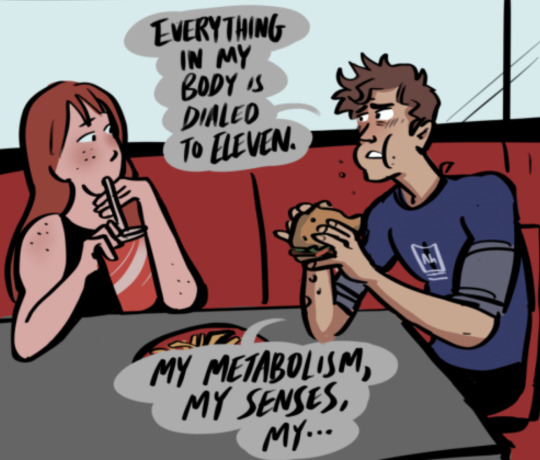#stress hormone
Explore tagged Tumblr posts
Text
Stress Reduction Through Gardening: An Organic Way to Well-Being
A beloved hobby for many years, gardening is appreciated for its capacity to turn outside areas into flourishing havens of breathtaking natural beauty. Gardening has a profound secret that is often overlooked but goes a long way toward controlling stress and fostering mental well-being. The therapeutic advantages of gardening have gained importance in our fast-paced, contemporary lives. This essay investigates the ways in which gardening provides a healthy and efficient approach to dealing with stress.
If you want to know more about Gardening and its benefits in our lifestyle, you must read the whole history of "benefits of gardening" with the help of this link: https://amzn.to/460u57x
If you want to know more about Gardening and its tools then must visit this link: https://amzn.to/40wwjus
The Scientific Basis of Stress Reduction in Gardening
Associated with Nature:-
Gardening has an innate connection to the natural world. Connecting with plants and being in an environment full of greenery helps one feel more connected to the natural world. There is proof that this relationship improves mental health by lowering stress and anxiety. Studies have indicated that spending time in natural settings, including gardens, can reduce cortisol levels and boost serotonin production—also known as the "feel-good" hormone.
Engagement in Exercise
Exercise and a sense of purpose are combined in the physical activity of gardening. Various tasks, such as digging, planting, weeding, and watering, are necessary when tending to your garden. These activities can aid in the release of endorphins, which have been shown to reduce stress and promote happiness.
Observance and Conscientious Gardening
Growing a garden promotes mindfulness, which is the art of being totally present in the moment. Gardeners can easily shift their concentration from anxious thoughts and problems by becoming involved in the activity at hand as they tend to their plants. Calm and clarity of mind can result from practicing mindfulness.
Engaging Senses
Planting stimulates more than one sense at once. The sounds of nature, the feel of leaves on the ground, the sight of flowers in bloom, and the scent of dirt can all contribute to a multisensory therapy that eases tension and quiets the mind.
Using Gardens to Reduce Stress
Taking Care of Your Own Garden
Having a garden at home might offer a convenient retreat for relieving stress. There are lots of ways to create green areas, whether you have a large backyard or a tiny balcony. For people with little outdoor area, window boxes, vertical gardening, and container gardening are all viable solutions. Having your own flowers, veggies, or herbs may be a fulfilling and healing endeavor.
Community Gardens
Community gardens are open areas where people can grow plants together and enjoy the advantages of gardening. In addition to providing a stress-relieving pastime, these gardens help people interact with like-minded others and build a sense of community.
Gardening Therapy
A controlled kind of gardening called horticultural therapy is used to enhance mental wellness. It is frequently given by licensed therapists who assist people with stress, anxiety, and other mental health conditions. Guided garden activities are part of horticultural therapy, which aims to improve emotional well-being, improve cognitive performance, and encourage relaxation.
Natural Reserves and Botanical Gardens
Without having a personal garden, one can immerse themselves in the beauty of nature by visiting botanical gardens and nature reserves. These open areas provide a haven from the stresses of everyday life and a chance to re-establish a connection with the natural world.
Gardening's Psychological Benefits
Reduction of Stress
It has been demonstrated that gardening lowers the body's levels of the stress hormone cortisol. Whether it's planting, weeding, or just relaxing in the garden, gardening can dramatically reduce stress and encourage a sense of peace.
Enhanced Emotion
Growing plants and caring for them may be really enjoyable. One's mood can be lifted and daily living can be made more enjoyable by the garden's beauty and sense of accomplishment.
Increased Self-Respect
Self-worth and self-esteem can increase through gardening. People experience a sense of accomplishment when they witness their hard work pay off in the form of flourishing plants, which helps reduce stress and self-doubt.
Taking a Break from Stress
Tending a garden offers a beneficial diversion from life's pressures. Gardeners experience less anxiety because they are less inclined to ruminate on troubling ideas and concerns while they are focused on their duties.
Coping Strategy
Gardening is a helpful coping strategy for a lot of individuals. It gives one a positive way to release tension and gives them a feeling of control over their surroundings, which can be particularly powerful in trying times.
The Benefits of Gardening for Physical Health
Work out
Gardening is a natural type of exercise because it requires physical exertion. Participating in gardening activities on a regular basis can result in better physical health, including increased flexibility and fitness.
Generation of Vitamin D
People who garden outside are exposed to sunlight, which helps the body make vitamin D. It is well known that this vital vitamin supports mental health as well as general well-being.
Clean Air
Exposure to fresh air, which can enhance lung health and give one a sense of renewal, is typically experienced when gardening.
Benefits of Gardening for the Environment
Beneficial Effects on the Environment
Growing food in a garden, especially with sustainable methods, makes the environment healthier. Reducing pollution and promoting biodiversity can be achieved through planting trees, raising native plants, and maintaining organic gardens.
A Wellspring of Motivation
Both an inspiration source and an instructional tool can be found in gardens. They inspire people to value and recognize the beauty of nature, as well as to become more ecologically conscious.
The Social Advantages of Gardening
Social Communication
Growing a garden may be a social activity that brings people together who share similar interests. Gardening encourages social connection, whether through garden clubs, community gardens, or just sharing advice and experiences with friends and neighbors.
Minimizing Social Disturbances
Gardening provides a means of social interaction and loneliness relief for persons who may be socially isolated. Neighbors can get together in the garden to socialize and exchange tales and life experiences.
In summary
A haven of peace and well-being in a society where stress and fast-paced living are the norm, gardening provides. It is an amazing and approachable tool for living a healthy and meaningful life because of its capacity to lower stress, enhance mental health, and offer a plethora of physical, psychological, environmental, and social benefits. Growing more people aware of gardening's healing properties will only increase the activity's capacity to enhance wellbeing by offering a time-tested, organic route to stress reduction and a happier, healthier life. Thus, whether you are an experienced gardener or have never touched soil, think about beginning your gardening adventure right now to discover the amazing ability of nature to calm your spirit.
#Accomplishment#mindfulness#Biodiversity#Physical Activity#flourishing plants#Horticultural Therapy#Gardening#Healthy Approach#Lifestyle#Healing#Self-esteem#Stress Hormone#Stress and Anxiety#Community#healing magic#emotionally resilient#social connectivity#personal development#stress#festivals#relationships#music
5 notes
·
View notes
Text
Do mosquitoes not like me today because I've been sweating cortisol all day?
4 notes
·
View notes
Text

A computer illustration showing the internal and external anatomy of a kidney and adrenal gland as it secretes hormones into the blood stream. Cortisol plays a Critical Role in your body, Regulating Metabolism, Sleep, Immune Function, Inflammation, and your response to Stress. This illustration depicts the Adrenal Cortex (gold), located above each Kidney, as it Secretes Cortisol and other Hormones into the Bloodstream. Illustration By Axel Kock, Science Photo Library
What Is Cortisol—And Should You Actually Be Worried About It?
Myths About Cortisol—Also Known as the “Stress Hormone”—Abound on Social Media. Here’s What Experts Say About This Substance That Helps Make Your Body Tick.
— By Erin Blakemore | March 01, 2024
How are your cortisol levels today? A few minutes on the internet might leave you convinced that your body is depleted of—or flooded with—the hormone.
Known colloquially as “the stress hormone,” cortisol plays a starring role in most of the physiological processes that make your body tick. But in recent years, it has become a victim of its own fame, with people blaming suspected imbalances of the hormone for ailments such as “adrenal fatigue,” weight gain, exhaustion, anxiety, headaches, and more.
Cortisol does play a vital role in your health. But are imbalanced cortisol levels really that common? Here’s what to know about the critical hormone—and why it may not merit as much worry as some social media health gurus would have you think.
A Physical Powerhouse
Secreted by the adrenal glands atop the kidneys, cortisol, known as a steroid hormone, can be found in nearly every tissue of the body.
“Honestly, we cannot do without it,” says Anat Ben-Shlomo, an endocrinologist and associate professor of medicine at Cedars-Sinai.
Cortisol allows the body to regulate everything from metabolism to sleep to immune function and inflammation, but it’s arguably best known for helping the body respond to perceived threats, a role that’s earned it the nickname of the “stress hormone.”
When the body perceives an internal or external threat, its sympathetic nervous system activates, triggering a complex sequence of hormonal responses. One such response is to prompt the adrenal glands to release cortisol, which helps give the body the energy it needs to cope with the stress and get back to homeostasis.
Too Much—or Little—of a Good Thing?
There is such thing as too much or too little cortisol.
Tumors in the pituitary gland can trigger too-high cortisol levels, leading to a condition called Cushing’s syndrome, characterized by weight gain, weakness, blood sugar problems, and bruising.
Meanwhile those whose immune systems attack their adrenal glands don’t produce enough cortisol and can develop chronic adrenal insufficiency, also known as Addison’s disease, which can cause crushing fatigue, dizziness, skin darkening, loss of appetite, and other symptoms.
“The diseases that are associated with cortisol deficiency or excess are very complicated, multiorganic, multisystemic diseases,” says Ben-Shlomo. They can be tricky to treat—and because cortisol issues share symptoms with other diseases, misdiagnosis is common.
But even though experts suspect these conditions are underdiagnosed, both are considered rare disorders.
The Myth of ‘Adrenal Fatigue’
Despite the rarity of cortisol disorders, internet health gurus and alternative health practitioners claim that with sustained stress, the adrenal glands can burn out and become unable to produce cortisol, leading to a cascade of symptoms commonly called “adrenal fatigue.”
But the term is a myth, Ben-Shlomo says, and a 2016 literature review of studies suggests the condition doesn’t really exist.
“It really takes a pretty big insult for your adrenal glands not to work,” Anne Cappola, professor of endocrinology, diabetes, and metabolism at the University of Pennsylvania School of Medicine, told National Geographic in July 2023. “These glands have a lot of built-in redundancy. You have two adrenal glands. You need less than one to function.”
Though serious endocrine disorders do exist, researchers warn against attempting to “balance” hormones at home or self-prescribing supplements—most of which are unproven and unregulated—to stave off cortisol deficiency or excess.
If your symptoms are affecting your quality of life, head to a doctor for more information. Endocrinologists can rule out adrenal problems and often identify other conditions, such as perimenopause and polycystic ovary syndrome (PCOS), that share symptoms with adrenal issues.
“The beauty of the adrenal glands is that they have a huge capacity to give you what you need to survive and withstand stress,” says Ben-Shlomo.
Fighting Back Against Chronic Stress
Stress may not burn out your adrenals or deplete your body’s cortisol reserves. But its effects are real, and supported by a vast body of literature that underlines the association between high stress levels and compromised health.
For example, those with multiple adverse childhood experiences are prone to a variety of health conditions, from mood disorders to obesity and stroke. Stress can trigger or worsen a slew of other conditions, compromising a variety of bodily systems and leading one group of researchers to write in 2017 that “the medical community needs to have a greater appreciation for the significant role that stress may play in various diseases.”
You may not be able to fend off a growing tumor or an autoimmune disorder. But you can modify your experience of stress through a variety of lifestyle modifications. Ben-Shlomo and colleagues stress regular exercise, a healthful diet, meditation or mindfulness, and enough sleep—factors that can treat or even prevent a variety of the conditions some people can mistake for an issue with cortisol production. After all, acute stress may have its evolutionary benefits but most of us would prefer not to experience it.
“Stress is a bad thing,” the physician says. “That’s been proven beyond any doubt.”
— Editor's Note: This story has been updated to clarify the distinction between acute stress and chronic stress.
#Body#Health#Kidney#Cortisol#Critical Role#Regulating Metabolism#Sleep#Immune Function#Inflammation#Stress#Adrenal Cortex#Hormones#Bloodstream#Stress Hormone#Physical Powerhouse#Adrenal Fatigue#Chronic Stress
0 notes
Text
i don’t believe men can get postpartum depression like women do. i get that a new baby affects both parents’ mental health, but i refuse to believe that men experience postpartum health problems to the same extent women as women.
#it feels insulting to hear about men complaint about their ‘post-partum depression’#no dude you have a major life event and a lack of sleep#meanwhile your wife just went through a major medical procedure and her hormones are all over the place#so how is normal baby stress post-partum depression for men someone pls explain#radblr#meg posts
881 notes
·
View notes
Text
we talk about Elrond being slightly eldritch all the time but what about teenage Elwing in the Havens getting mad at Earendil for a thoughtless comment or something and when she flips out the nearby seabirds start freaking out and attacking people and Gil-galad and Cirdan just have to deal with this
152 notes
·
View notes
Text
Herbs to help you regulate cortisol and stress 🌿🍵🧚
🍃 Chamomile when you have an anxious stomach
🍃 Valerian when your thoughts don’t let you sleep
🍃 Skullcap when you feel muscle tension from stress
🍃 Holy basil when you’ve been high stress for days
🍃 Rhodiola when you feel burnt out from stress
🍃 Gotu kola when stress is causing you brain fog
🍃 Passion flower when you feel irritable and snappy
#herbs#plants and herbs#natural medicine#meditation#womens health#healthy lifestyle#health tips#health and wellness#healthylifestyle#cortisol#manage stress#hormones#hormonal balance#hormonal imbalance#healingjourney#healing#law of the universe#medicinal herbs#chinese herbs#natural herbs#herbsforhealth
510 notes
·
View notes
Text

Diagnosing Cullen with hormone imbalance gynecomastia :)
#art#drawing#artwork#digital art#fan art#dragon age#dragon age inquisition#cullen rutherford#da cullen#you cannot tell me he doesn’t have stress induced hormone inbalance
42 notes
·
View notes
Text
Sap
Past Gomz would burst into tears knowing Present Gomz gets asks about oc stuff
#insane#sometimes it feels like it was yesterday#came a looooong way from zero notes to a few and then friends and people who genuinely likes them#🥹#thhats why it still surprises me sometimes#i appreciate all the love for my bbgs#the reblogs who always says nice things about them…those who can relate to Jelly and all…i read them#and i cherish them#in a way cuz each oc has a tiny bit of me so to have them being love makes me feel loved too#ooooo sappy gomz wtf#i blame the hormones my cycles are fucked due to stress#and cramps#mmngh pain#makes my emotions whack#gummmyspeaks
25 notes
·
View notes
Text
Waiting outside the DMV feels like I'm gonna get an ulcer
106 notes
·
View notes
Text



Hormones & Weight loss (part 1) : Cortisol



Cortisol
Cortisol, also known as the stress hormone, is a circadian hormone, meaning it follows a 24-hour cycle. Its levels naturally increase in the morning with sunlight and decrease in the evening to support sleep. It works in tandem with melatonin to regulate your sleep-wake cycle. However, chronic stress and inflammation can lead to consistently elevated cortisol levels, making weight loss difficult and promoting abdominal/visceral fat storage.
🩵 What It Does: Chronic stress increases fat storage, especially around the abdomen, and heightens cravings for sugary or fatty foods.
🩵 Signs & Symptoms: Fatigue, weight gain around the abdomen, sugar cravings, sleep disturbances, anxiety, and feeling “wired but tired.”
🩵 How to Support:
• Sunlight before screen light: Upon waking, spend 5–20 minutes in natural daylight. This could include a morning walk, journaling outdoors, or simply sitting on your balcony or outdoor stairs.
• Sleep hygiene: Optimize your sleep by keeping a consistent bedtime, lowering the temperature in your bedroom before sleeping, and avoiding naps during the day.
• Stress management: Engage in activities that align with your belief system, such as prayer, guided meditation, or breathing exercises. Spend time on meaningful or creative activities, connect with loved ones (including pets), and take walks in nature.
🩵 Supplements that may help:
• Magnesium: Supports relaxation and can help regulate cortisol.
• Ashwagandha: An adaptogen with evidence suggesting it lowers cortisol levels in stressed individuals.
• L-theanine: Promotes relaxation without drowsiness, helping to balance cortisol by reducing stress.
• Phosphatidylserine: Studies indicate it may reduce cortisol spikes, especially after intense physical activity.
🩵 Always talk to your doctor if you have any concerns about unbalanced cortisol, before making any significant diet/lifestyle changes and before taking any supplements.
#2025#fitblr#fitness#health and wellness#losing weight#weight loss#wellbeing#wellnessjourney#healthy#health & fitness#stress#stress management#cortisol#hormonalbalance#hormones#hormonalhealth#glow up#that girl#it girl
25 notes
·
View notes
Note
I swear I have read your big post regarding Peter Parker's neurodivergence and why it is best to avoid labelling him, but he definitely has a weird brain
Can't find it and feel kinda sad about it cuz I deeply related to it
i know exactly which post you're talking about and i can't find it either! i've raked through my archive, and it's just - nowhere to be seen. i think tumblr eated it (it happens.)
really, tumblr's search functionality is so so useless, i don't know what to tell you. there are plenty of keywords i can search to find it that post, but the search functionality actually just does not work!
undiagnosed audhd-addled peter parker, my darling, my light, my life, my everything.
i think peter parker's such an interesting creature to write, because a lot of people will point to a certain behaviour about him and say "this is an autistic thing, right?" but a lot of those behaviours are actually, in my head, tied to certain traumas in peter's life too.
people say "oh, the food thing, peter's a picky eater because he's autistic" and yes, absolutely. but also it's tied to his trauma with his parents.

peter gets overstimulated, and yes, it's an autism thing, but also he was bitten by a radioactive spider and his senses are dialled to 11.

it's a similar case i've found for myself, too – where a lot of friends i have kind of diagnose me because i have autistic traits, but actually - i'm hesitant to claim the label or pursue diagnosis because, actually, i know where these certain behaviours come from, and they come from certain traumas. there are events i can pinpoint in my life and say "yep. that's where this behaviour comes from."
so - i think there's a lot of overlap between trauma and autistic traits. the brain is very complex! i think the reason for that overlap is maybe as simple as the fact that people with autism and people with trauma are both doing the same thing - developing behaviours to protect themselves or soothe themselves. so - i think it's nice to be able to see a character like peter parker, who may or may not be autistic, but recognise behaviours in him and see yourself in him.
people who go undiagnosed for whatever reason - people who are really good at masking - so good, in fact, that they have no idea they might be on the spectrum - everyone and anyone at all can look at peter parker and recognise themselves. because i think we discredit the thought that every single brain does the same thing! develops certain behaviours in order to survive. every brain has that same software - we've just all been faced with different hardships that we need to overcome, and that's were all the differences come in.
autism is a spectrum, i guess - everyone falls into it to some degree. and i think events in your life probably push you along on it. but i don't know, i didn't study brain science. probably what i'm saying is very stupid and uninformed. of course there's brain chemistry involved. but i know people in my life living with autism and certain events in their life have exacerbated certain behaviours or made coping with it a lot more difficult. so maybe trauma is a catalyst.
#a lot of my traits have been exacerbated lately and i remember it was much easier for me before#and some of my friends have said “oh it's because you've been masking too long and now you're facing autistic burnout.”#and that made sense to me i think.#but then i found out about the stress thing. me overproducing stress hormone. and that's a very physical thing.#and that explains why i've been overstimulated more than usual lately. and why everything feels like too much.#and i wonder how many of these traits of mine are going to subside once i have lamar removed#and it makes me wonder a lot of things. and it's so weird how much your brain is tied to your biology.#i wonder how much i'll change. i wonder how i'll feel. i wonder if i'll still feel like me. i wonder how much me is me right now.#and how much of me is being altered by weird freaky hormones. who am i?? who will i be??#i'm almost looking at this as like. a superhero origin story of some sort. like this is my spider-bite moment. maybe.#will i be different? will i cope with things differently?? now that my body isn't fighting something anymore??#maybe i'll be normal. i don't know. i don't know.#i don't know what it'll mean for me.#but all of these things mean i relate to peter parker in a certain kind of way#i don't think you have to be diagnosed with autism to recognise and empathise with those traits i think#i think everyone can see themselves in peter. and i think that's the benefit of having characters that aren't diagnosed.#because there's so much overlap in the human experience. and certain feelings aren't exclusive to just one group of people.#peter has such a rich identity actually. it's an autistic thing. it's a queer thing. it's a jewish thing. it's a trauma thing.#there are so many overlapping parts of peter's identity that inform who he is and how he behaves and it's never just one thing.#it's a product of all of his things.#just like me! just like everyone.#so me? i guess i can be a million things. you can explain what i am in a million different ways.#a hundred different psychologists can all come up with different ways to explain why i be the way i be.#i don't think it's something that can be simplified.#sorry wow. i'm really going off here in the tags.#i hope people don't think i'm stupid. i don't know brain science. i'm just philosophising as usual.#sci speaks
65 notes
·
View notes
Text
so stupid that the body can have physical reactions to stress. like buddy dont you see youre adding to it ??? seriously how is this in any way shape or form an evolutive advantage
#when they drop earth 2.0 they should make the stress hormones good for you#like maybe youre fighting for your life in exams week but your liver is getting repaired or whatever the fuck idk
83 notes
·
View notes
Text
penelope canonically retreating to her room and refusing food = she puts on some weight, the reason being both lack of physical activity as well as her body being on constant emergency mode (so what little she does eat ends up being stored away bc the body doesnt know when the 'starvation' will end). whats more her constant stress elevates cortisol levels which in and of itself leads to weight gain esp in the abdominal area.
tl;dr chubby penelope send fucking t w e e t
#that is it that is the post#cortisol is also known as the stress hormone#helps u wake up & regulates metabolism among other things#it helps you cope with stress but too much of it (much like anything else in life) is not good for you and your health#this has been on my mind for so long#no im not projecting#shush#thinking abt her naiad heritage too#like maybe she can get through long periods without or with very little food but her human body's nutritional needs prevail idk#and then midnight snacks maybe lol#away from the piercing gaze of the wretched suitors and judgemental looks of certain maidservants#chubby penelope for the soul#penelope of ithaca#my beloved muffin#with razor sharp teef#give the cinammon roll some tummy rolls!!#BONUS: when ody comes home they both heal together and side by side#coming to terms with just how merciless the years have been#ody gains healthy weight after years of abuse in ogygia (i hc he purposely denied himself proper food bc thats the only agency he had#as well as the making urself undesirable to the abuser)#and penelope goes for swims and perhaps bonds with telemachus in a new way like races and swimming competitions aw#as well as teaching him some naiad stuff he probably inherited#family healing yay!#:')#btw not saying they go back to their 20 year old physiques#what i am saying is they now take better care of themselves and each other#and one of the ways its reflected is in their frames#i think we need more middle aged odypen art#and age accurate content in general#esp post odyssey
24 notes
·
View notes
Text
Ahahaaaa oh my goddd can you not make "ADHD undereating" and "ADHD overeating" into a competition of who has it worse and who has nothing to complain about, that'd be awesome
#im not even going to reply to that person im not gonna argue with someone who clearly is fucking#grading my symptoms on if they're as bad as their#guess what i also feel like fucking shit when i overeat and it causes my body a lot of stress#and it fucks with my hormones and it fucks with my mood#and i live a piece of shit horrible terrible life whenever I can't get myself out of that and somehow#but my brain makes me do it and it's hard to stop and sometimes i have to eat even when im in pain#cause that's the only way i can concentrate on something or the only way that i can stimulate my brain#even though i feel sick and I don't want to do it anymore so maybe shut the fuck up#oh my godddd#fuck that person#oh i would take overeating any day maybe shut the fuck upppp#overeating especially on foods that stimulate the brain well PUTS YOU IN THE STATE OF UNDERNUTRITION JUST LIKE UNDEREATING#YOU IDIOTTTTT#sorry this is so personal to me and someone just went on a tirade on how much they have it worse cause they don't eat#good lord go fuck yourself#that post was just because i never see anyone talk about this i only ever see the other side of the coin and it makes me feel alone
46 notes
·
View notes
Text
i'm stupid so i absolutely did not put together Conrad Schintz as "conscience" until i saw someone in the tag point this out but now that it's in my dumb brain i can't stop thinking about it. Alex's choice to portray Conrad as this softspoken never speaks up but still has to do Something boy who is kind and thoughtful to a fault. pitch perfect character choices!!! but also this tiny quiet boy somehow being pegged by the heads of the city as the BIGGEST DISTRACTION to the big guy's goals and ambitions!! and then his choice of the important article to pay attention to being the culmination of Elias' months and months of research - specifically for the goal of, as Conrad put it, getting it before the "big wigs" could get to it. WHAT is Elias Hodge DOING for Gobstopper Industries??????
#sarah.txt#dimension 20#mentopolis#d20 spoilers#d20 meta#story meta#kind of????? this isn't really meta just me going WHAT is going on and being too dumb to figure it out skdnfskdfnsd#god these fucking world building choices though.#cortisol being the main hormone available legally and one of its functions is to regulate stress response.#the city is on strict pleasure/love lockdown until elias gets a raise.#his conscience is a tiny little boy who no one ever listens to but still somehow managed to shake up the whole city w one small choice.#logic is the mayor!!! ambition is the DA!!!!!#all of these small things that tell us SO MUCH about who elias hodge is as a person without ever even meeting the big guy!!!!!!#Brennan how much fucking WORK did you put into this world building i'm SCREAMING!!!!!
168 notes
·
View notes
Text
wholesoul is so animals cuddling to me... they're otters holding hands so they don't drift apart, they're cats curled up on a soft blanket, they're two bonded rats nestled together in a little hidey hole away from the scary world...


^ real images of wholesoul btw
#did you know that voles spent more time grooming their partners when they've been subjected to stress in labs?#regardless of the presence of stress hormones?#that's them to me.#cj soul#cj whole#cccc soul#cccc whole#tridential tirade#they are very fucked up and codependent and fairly unhealthy but they can also be sweetness too#as a treat#kaleidoscope posting
15 notes
·
View notes